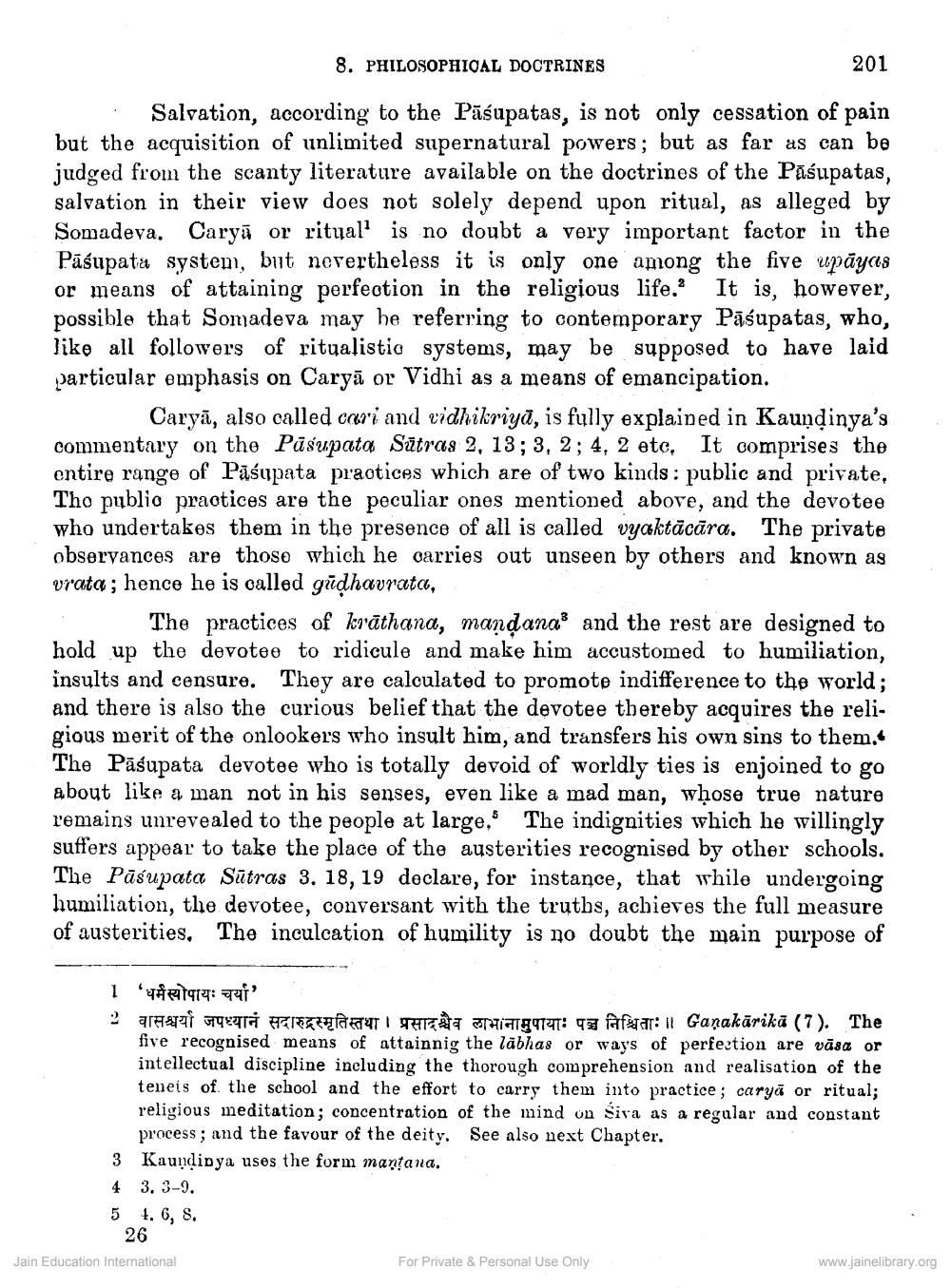________________
8. PHILOSOPHICAL DOCTRINES
201
Salvation, according to the Pāśupatas, is not only cessation of pain but the acquisition of unlimited supernatural powers; but as far as can be judged from the scanty literature available on the doctrines of the Pāśupatas, salvation in their view does not solely depend upon ritual, as alleged by Somadeva. Caryā or ritual' is no doubt a very important factor in the Pāśupata system, but nevertheless it is only one among the five upayas or means of attaining perfeotion in the religious life. It is, however, possible that Somadeva may he referring to contemporary Pāśupatas, who, like all followers of ritualistic systems, may be supposed to have laid particular emphasis on Caryā or Vidhi as a means of emancipation.
Caryā, also called cari and vidhikriyā, is fully explained in Kauņdinya's commentary on the Pasupata Sūtras 2, 13; 3, 2; 4, 2 etc. It comprises the entire range of Pasupata practices which are of two kinds : public and private, Tho publio practices are the peculiar ones mentioned above, and the devotee who undertakes them in the presence of all is called vyaktācāra. The private observances are those which he carries out unseen by others and known as vrata; hence he is called gūdhavrata,
The practices of krāthana, mandanas and the rest are designed to hold up the devotee to ridicule and make him accustomed to humiliation, insults and censure. They are calculated to promote indifference to the world; and there is also the curious belief that the devotee thereby acquires the religious merit of the onlookers who insult him, and transfers his own sins to them. The Pāśupata devotee who is totally devoid of worldly ties is enjoined to go about like a man not in his senses, even like a mad man, whose true nature remains unrevealed to the people at large. The indignities which he willingly suffers appear to take the place of the austerities recognised by other schools. The Pasupata Sūtras 3, 18, 19 declare, for instance, that while undergoing humiliation, the devotee, conversant with the truths, achieves the full measure of austerities. The inculcation of humility is no doubt the main purpose of
1 Tatar: 741 2 arasaf T FFI PETAT I THE S TATUT: qa fafar: Il Ganakārikā (7). The
five recognised means of attainnig the labhas or ways of perfection are vāsa or intellectual discipline including the thorough comprehension and realisation of the tenets of the school and the effort to carry them into practice; caryā or ritual; religious meditation; concentration of the mind on Siva as a regular and constant
process; and the favour of the deity. See also next Chapter. 3 Kaundinya uses the form mantana. 4 3. 3-9. 5 4, 6, s.
26 Jain Education International For Private & Personal Use Only
www.jainelibrary.org




